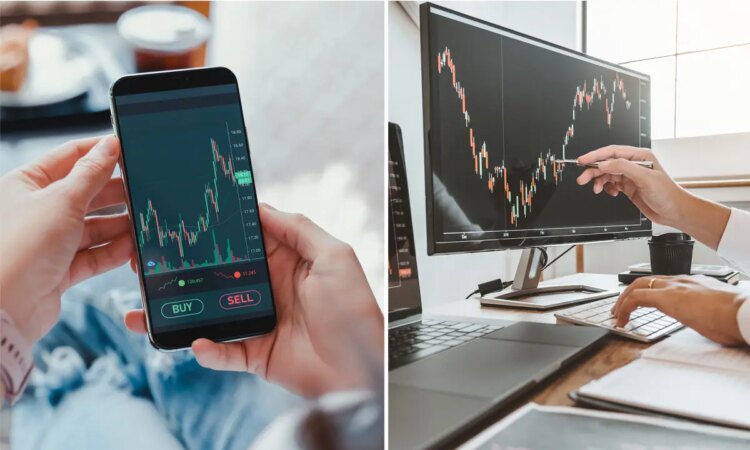
Cryptocurrency investment has surged into mainstream finance, becoming an enticing yet daunting prospect for beginners.
Whether you’re a seasoned investor or entirely new to financial markets, understanding the fundamentals of cryptocurrency investment is essential. This guide answers critical questions for anyone venturing into the digital asset space.
How do you start investing in cryptocurrency?
Investing in cryptocurrency begins with selecting a reputable exchange platform and then taking full control of the digital assets through decentralized, self-custodial crypto wallets such as Best Wallet.
The first step is setting up an account on a cryptocurrency exchange such as Coinbase, Binance, Kraken or Gemini. These platforms allow users to convert fiat currencies like U.S. dollars or euros into digital assets.

After choosing an exchange, users must complete Know Your Customer (KYC) procedures, including identity verification — an essential step to comply with anti-money laundering regulations. Once verified, you can link your bank account or card to deposit funds and begin buying cryptocurrency.
Mike Cahill, CEO of Douro Labs, described the process as “surprisingly simple,” adding: “Most people begin by buying Bitcoin or Ethereum through a trusted exchange like Coinbase or Kraken. Think of it like setting up a brokerage account.”
Once the crypto is in your account, you send it to your wallet address. This is a blockchain transaction that moves your assets from the platform’s control to your own.
How to safely invest in cryptocurrency
Security is paramount in the world of crypto. Investors should use strong passwords and enable two-factor authentication (2FA) to protect their exchange accounts. For longer-term holdings, many experts recommend moving assets off exchanges into private wallets.
“Security is at the core of Bitcoin,” said Muneeb Ali, CEO of Trust Machines.

“Bitcoin enables users to own their financial experience from start to finish. But with that freedom comes responsibility — use a hardware wallet, enable 2FA, and always be cautious about phishing attacks.”
Douglas Colkitt, a crypto developer and early contributor to Fogo, agreed: “Use a trusted, regulated exchange, always enable two-factor authentication, and never share your private keys. If you’re holding for the long term, learn how to use a non-custodial wallet.”
How to invest in cryptocurrency with little money
A common misconception is that crypto investing requires substantial capital. In fact, digital currencies are divisible, allowing fractional purchases — even just a few dollars’ worth.
“You definitely don’t need a lot to get started,” said Cahill.
“Most platforms let you buy fractions of a coin. You can invest $10, $50 — whatever you’re comfortable with.”

Sean Worthington, founder of CloudCoin and a long-time crypto educator, also advised caution for new investors.
“Start small. Focus on learning how the ecosystem works,” Worthington told The Post.
“The best investment you can make early on is your time and attention.”
Strategies like dollar-cost averaging (DCA) — where you invest a fixed amount at regular intervals — can help mitigate the impact of market volatility while building long-term exposure.
Why should I invest in cryptocurrency?
Cryptocurrencies like Bitcoin and Ethereum have shown the potential for exceptional returns, especially during times of economic instability. Crypto also offers portfolio diversification due to its relatively low correlation with traditional equities.
“Bitcoin is a generational asset,” Ali noted.
“It’s a way to hedge against uncertainty while preparing for the long-term financial revolution. It’s been around the longest and has the strongest brand name and capital base in crypto.”
Additionally, blockchain technology — the foundation of cryptocurrencies — offers decentralized, transparent, and secure transaction mechanisms that challenge conventional financial systems.
Are You Crypto Curious?
How to start crypto trading today

Download a trusted exchange app — Start by choosing a licensed crypto exchange. We recommend starting with the Best Wallet app, available for both iOS and Android.
Create and verify your account — Sign up using your email, Google, or Apple ID. To complete registration, you’ll need to verify your identity with a government-issued ID and enable two-factor authentication (2FA) for added security.
Fund your account — Deposit money into your account by linking a bank account or credit card or even using gift cards. Choose an option that best fits your lifestyle.
Buy your first cryptocurrency — Use the app’s marketplace or swap tool to purchase crypto by entering the ticker symbol — like BTC for Bitcoin or ETH for Ethereum — and follow the prompts to complete the transaction.
Choose how to store your crypto — Decide whether you’ll keep your crypto in the exchange, move it to a digital wallet (hot wallet), or store it offline (cold wallet) for extra protection.
How to invest in Bitcoin
To invest in Bitcoin, follow the same basic steps: set up an exchange account, deposit funds, and purchase BTC. For more hands-off exposure, some investors choose Bitcoin ETFs or trusts, which trade on traditional brokerage platforms.
Long-term investors are encouraged to store their BTC in hardware wallets for maximum security. “If you’re in it for the long haul,” Cahill added, “consider moving it to a personal wallet you control.”

Which cryptocurrency should I invest in?
Most beginners gravitate toward Bitcoin (BTC) and Ethereum (ETH) for their market dominance and established ecosystems. Ethereum supports decentralized apps like Best Wallet and Robinhood, and NFTs, while Bitcoin is considered a hedge against inflation.
Other notable projects like Cardano (ADA), Solana (SOL), and Polkadot (DOT) are gaining traction, though investing in them requires deeper research. Worthington warned, “Not all cryptocurrencies are created equal. Some function like stocks, funding specific projects. Others, like stablecoins, aren’t meant to appreciate in value.”
Crypto vs. stocks: Which should I choose?
Choosing between crypto and stocks depends on your goals. Stocks tend to be more stable and yield dividends, while crypto offers high-risk, high-reward potential.
“Over the last 10 years, Bitcoin has repeatedly outperformed the stock market,” Ali said. “And with the launch of Spot ETFs in the U.S., it’s easier than ever to gain exposure. Financial institutions now see Bitcoin as part of a balanced portfolio.”
Conclusion
Cryptocurrency investing presents a dynamic opportunity to diversify your portfolio and potentially realize substantial gains. For beginners, starting small, prioritizing security, and adopting a long-term learning mindset is key.
As Mike Cahill put it, “Start small, stay curious, and focus on learning before you go big.”
With careful research and responsible risk management, crypto can become a valuable part of your financial strategy.



